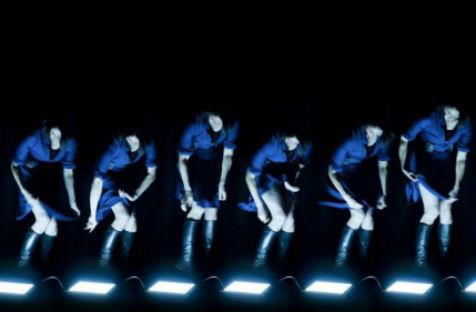Playwrights are doing less writing and more listening as they rework true-life stories from gay parenting to race riots.
The memoir-novel and the general blurring of fiction and non-fiction into a genre inelegantly called ‘faction’ have dominated the literary scene in recent years. Now verbatim theatre is doing to the stage what faction has done to the page.
Communities from the children of gays to Lebanese-Australians are lending their voices to playwrights who record what they say and craft it into theatrical work. Playwrights become part-reporter, part-creator of works that speak on behalf of living people.
Via the process of interview and transcription, verbatim enables the theatre-maker to represent real world with the rawness of journalism, keeping the integrity of the community, down to the articulation of voice, breath and movement, but using stagecraft and narrative structure to engage the audience.
The technique has been particularly embraced in queer art. The pioneering example of verbatim was The Laramie Project by Moisés Kaufman about the murder of gay Wyoming student Matthew Sheppard. In Australia Dean Bryant’s recent production Gaybies, the first work commissioned by the Midsumma festival, was based on interviews with the children of gays who could tell compelling stories of meeting Dad at a gay club, learning to wear heels from drag queens and dealing with the deaths of mysterious ‘uncles’ in the 1980s., I had a shot at the style with travellers’ tales in Transit, staged at Midsumma in January.
Verbatim-style interviewing also enables theatre-makers to tap into ethnic or political communities. Roslyn Oades’ Stories of Love and Hate was directly inspired by the Cronulla riots of December 2005. Oades grew up in Bankstown, home to Sydney’s largest Lebanese Australian community, an area at the heart of the conflict with the predominately Anglo-Australian beach suburbs of the Sutherland Shire.
‘I spent two years with those communities, interviewing them about their love lives and about their experience of that day and I only interviewed people who had directly been involved in the Cronulla riots in some way. I was exploring the question, or the idea, that at the heart of every war is a love story. The idea that every war is about protecting something you love.’
Oades embraces the ‘incidental poetry’ of natural voices. ‘I come from a visual arts background, so I really like the idea of composing and collage. I’m not very interested in actor-ly work, I really like that this technique prevents my performers from acting, they just say what they hear as accurately as possible.’
‘It’s not interpretive work and I’m quite interested in that way of constructing performance. ‘I think of myself as a writer, I’m very manipulative and interventional in the manner in which I construct my audio-scripts. I’ll edit my material in great detail and I’ll rearrange the order of stuff.’
Using verbatim is ideal for such sensitive content. ‘I can say to a community member, “I’m not going to make up anything, I’m only going to reproduce what you said, as you said it.” I’m actually looking for the story embedded in the way people speak. As an artist I operate from the principal that there is as much information in the way someone speaks as what they’re saying. And my cast is committed to mining those nuances of the vocal print in performance.’
But, just as in journalism, co-opting the voices of real people, can be problematic. Oades is strongly aware of the need to maintain an ethical framework that is much more constrained than in fiction.
‘I do think that when you make a work of verbatim theatre, you enter a relationship with a community of real people and you need to have a strong moral compass. I try to be as transparent as possible, which can be difficult when you work in a non-traditional way with people who have not seen your shows – and in some cases have never seen a piece of live theatre.’
Verbatim work isn’t as simple as transcribing powerful voices in particular communities. Theatre makers are creating original works using the process of interview and documentation as a tool within the creative process. Tamara Saulwick has used interview material throughout several of her most recent productions. ‘In the last few pieces I have used interview material… [but] all of those pieces are formally quite different. One was a solo theatre work, last year was a site specific audio walk and I’m currently working on a site specific piece in a public space which has more of a live performance component integrated into it.’
Saulwick’s award-winning production Pin Drop toured nationally in 2012 following seasons at the Malthouse Theatre and Arts House. The project is an audio-sensory work explored notions of fear and used verbatim processes including interviews with real people as a development and performance tool.
Saulwick says that within each of these projects, the documentary fragments have played a different role. ‘In the solo theatre work that was very central, the verbatim texts were the material whether spoken by me or via recordings or by the pre-recordings, whereas in these other two… the interviews form more a part of a mix.’
The original voices are present throughout the work but not always heard directly. ‘Sometimes, in the beginning it’s a duet between my voice and their voices, fading in and out of each other, or speaking in unison, kind of like a piece of music in that way. Sometimes I’m speaking the text, sometimes you hear the text and I’m working physically, sometimes the pre-recorded voice and my voice and going along together; it’s a sound work, it’s a sound piece as much as it’s a performance piece.’
Visit Tamara Saulwick’s website and Roslyn Oades’ website to read more about their upcoming projects.





